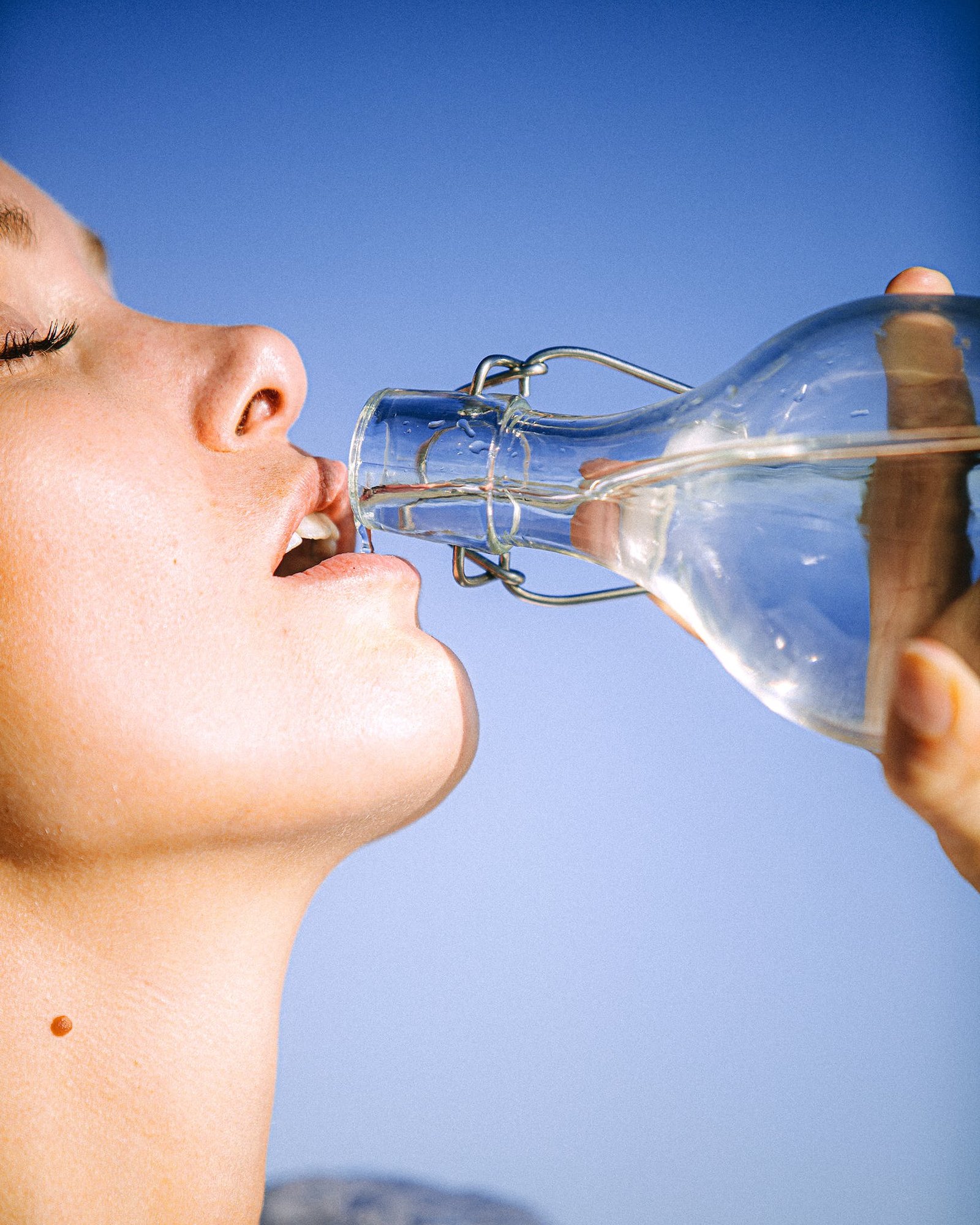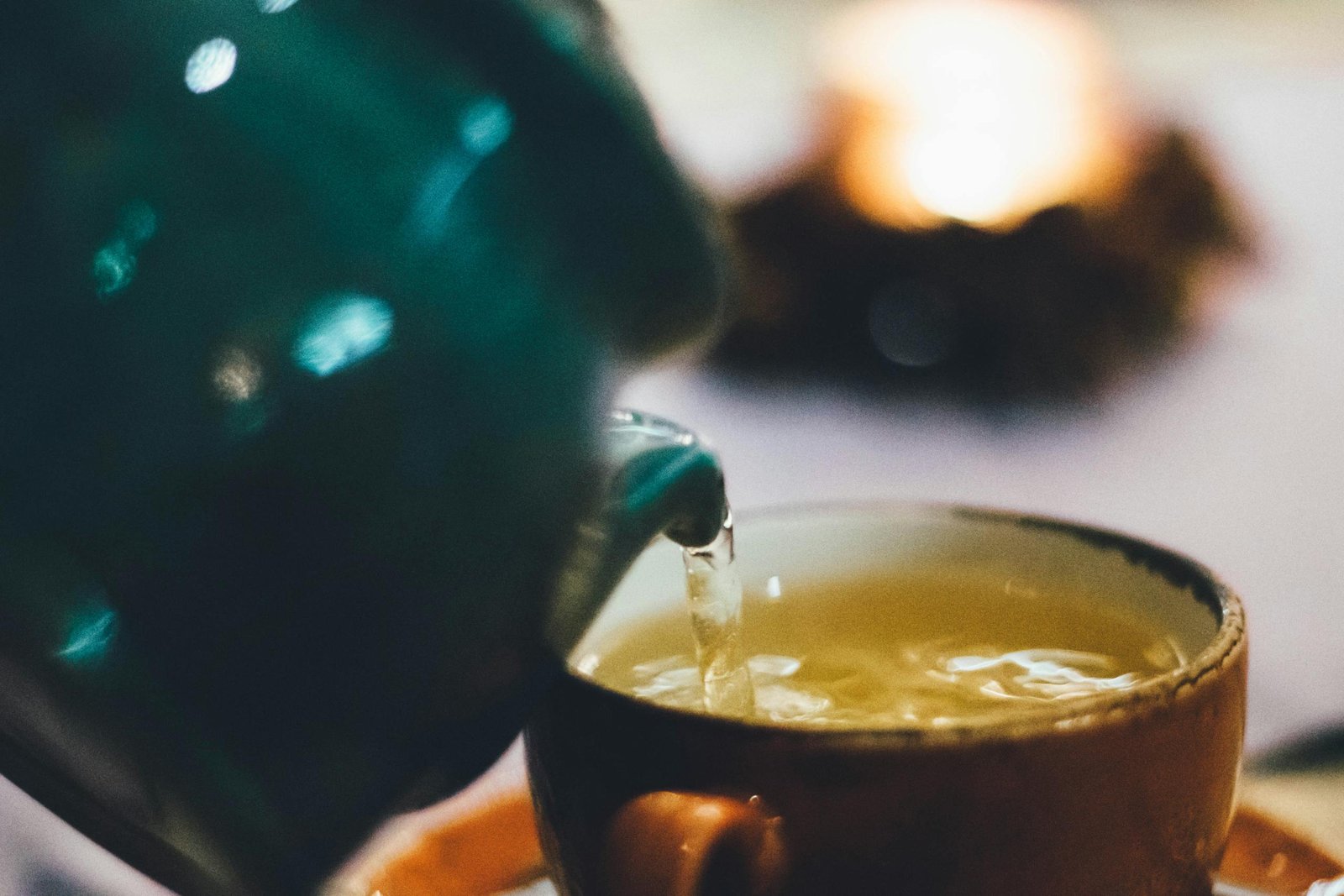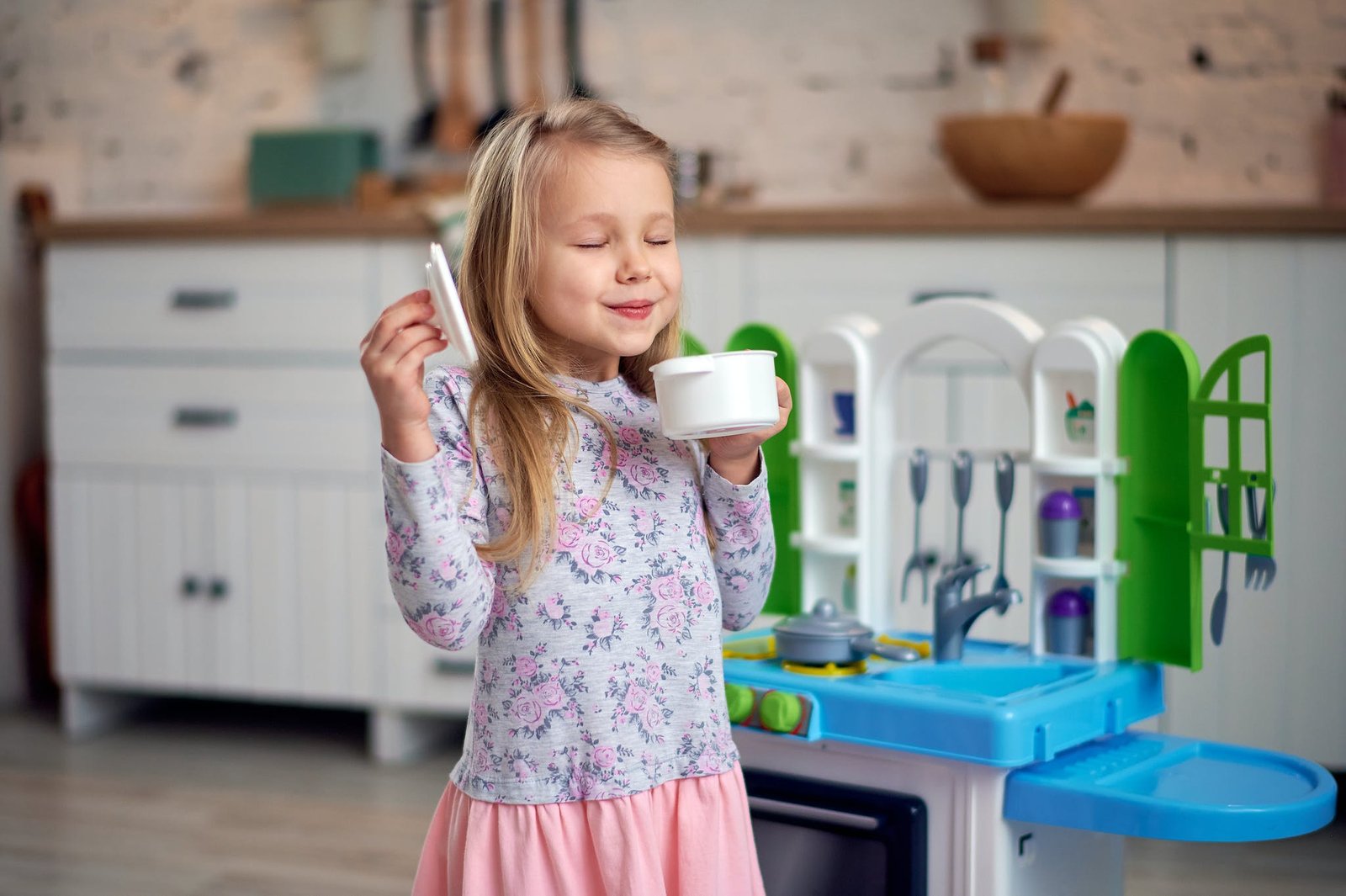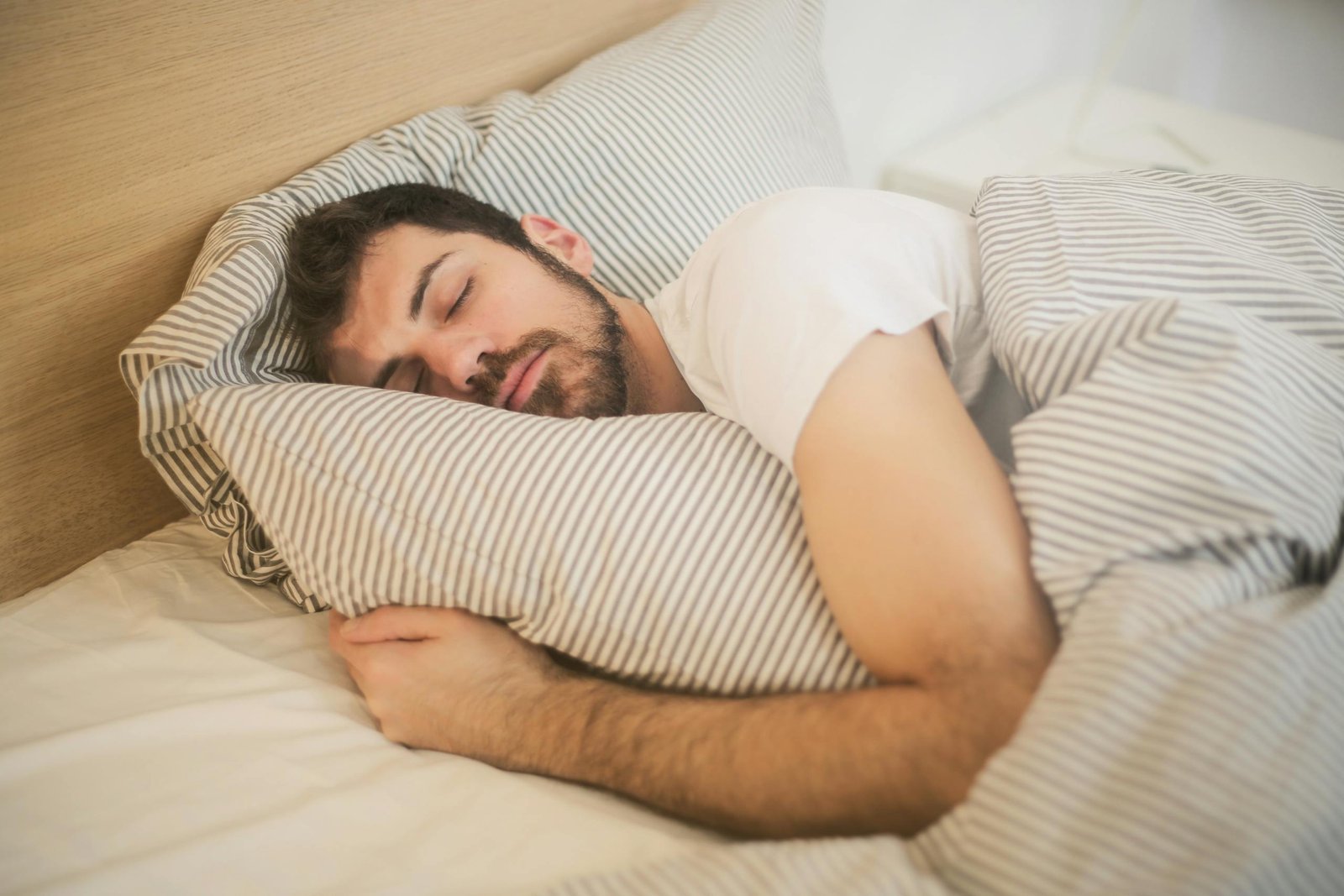Best Healthy Teas To Drink For Optimal Hydration
There are some affiliate links below, but they are all products I highly recommend. For more info, view my disclosure here.
Staying properly hydrated is crucial for our health – it gives us energy, keeps our cells functioning, and prevents headaches and fatigue. While plain water is an excellent hydrator, tea can also be a great way to hydrate if you want a beverage with more flavor.
However, not all teas hydrate equally. The caffeine content in some black and green teas acts as a natural diuretic, making you lose fluids. Herbal teas, on the other hand, contain no caffeine and are composed of roots, fruits, and flowers that are more effective at hydrating the body.
This article will discuss the best types of tea to drink when you want a delicious beverage that will also provide superior hydration. We’ll cover which herbal, black, green, white, and oolong teas are ideal for keeping your fluid levels up, as well as tips for brewing and serving hydrating teas.
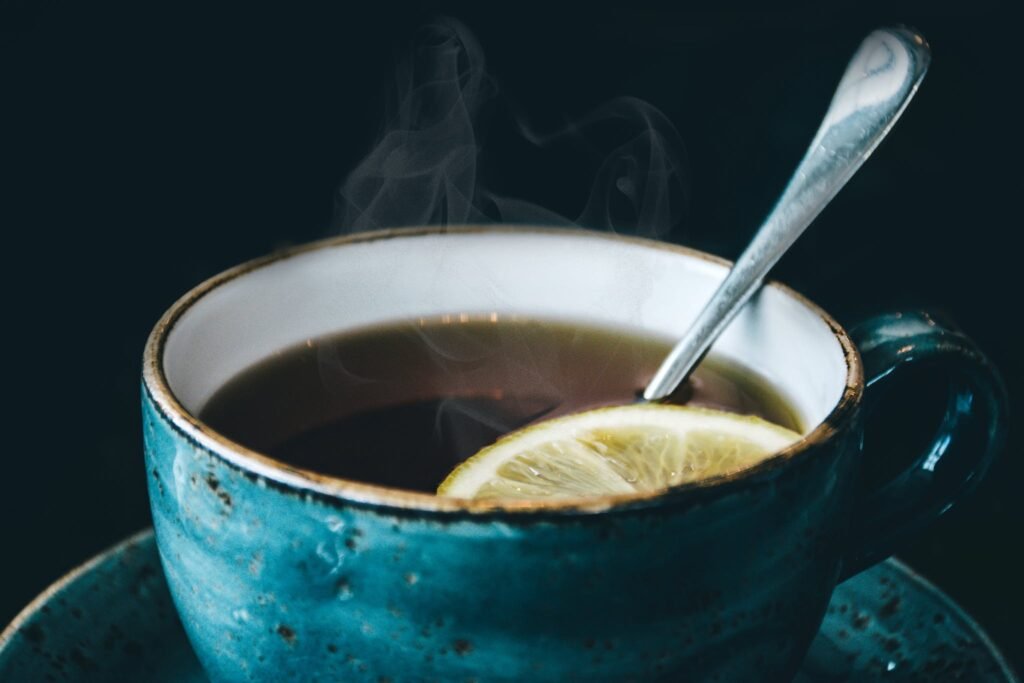
Herbal Teas
Herbal teas are naturally caffeine-free, making them an excellent choice for hydration. Without any caffeine, herbal teas do not act as diuretics, meaning they don’t cause increased urine output and loss of fluids like caffeinated beverages can.
Some of the best herbal teas for staying hydrated include hibiscus, ginger, and peppermint. Hibiscus tea provides a tart, cranberry-like flavor along with electrolytes like potassium and magnesium to replenish fluids.
Ginger tea has a spicy-sweet taste and contains gingerol, which helps settle upset stomachs. Peppermint tea has a cooling minty flavor and the menthol may help reduce nausea and discomfort.
Sipping on a hot cup of any of these herbal teas throughout the day is a tasty way to keep your fluid levels up. For variety, try herbal infusions like rooibos tea or butterfly pea flower tea.
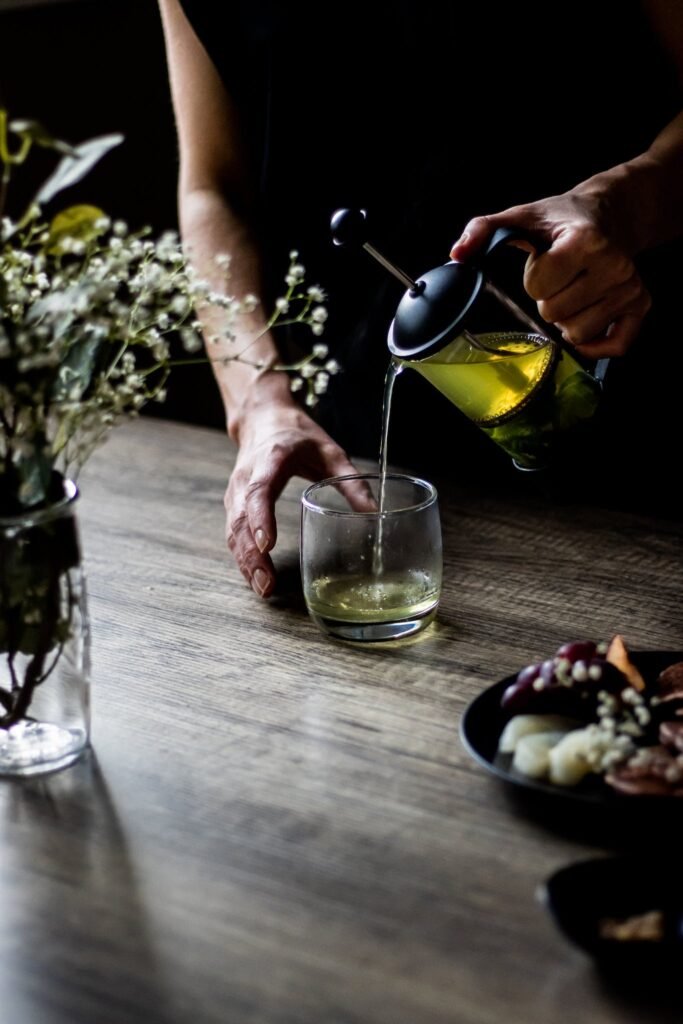
Green Tea
Green tea makes for a nice compromise if you want the benefits of tea along with decent hydration. Green teas have less caffeine than black teas – generally around 25-45 mg of caffeine per 8 oz cup rather than 50-90 mg.
This moderate amount of caffeine provides a boost without strongly diuretic effects that can lead to dehydration. In addition to more mild caffeine levels, green tea has high levels of antioxidants like EGCG that may help fight inflammation, improve brain function, and even aid in weight loss.
So you can get hydration along with these other health bonuses by sipping green tea throughout the day. Just be mindful of your caffeine intake – too much can still have a diuretic effect. But a few cups of green tea can be the perfect way to hydrate with flavor and added health benefits.
White Tea
For an extremely hydrating tea with minimal caffeine, white tea is an excellent choice. White tea comes from the same plant as green and black teas, but the tea leaves are picked at an earlier stage before they are fully opened and oxidized. This earlier harvest means that white tea has even less caffeine than green tea – generally around 15-30 mg per cup.
The minimal caffeine content makes it less likely that white tea will have diuretic effects when consumed in moderation. In addition to being lightly caffeinated, white tea still retains high levels of antioxidant compounds like flavonoids and polyphenols.
The combination of very low caffeine and antioxidant activity makes white tea perfect for staying hydrated while also reaping some additional health benefits. White tea’s delicate, mildly sweet flavor also makes it pleasing to drink cup after cup to keep your fluid levels up.
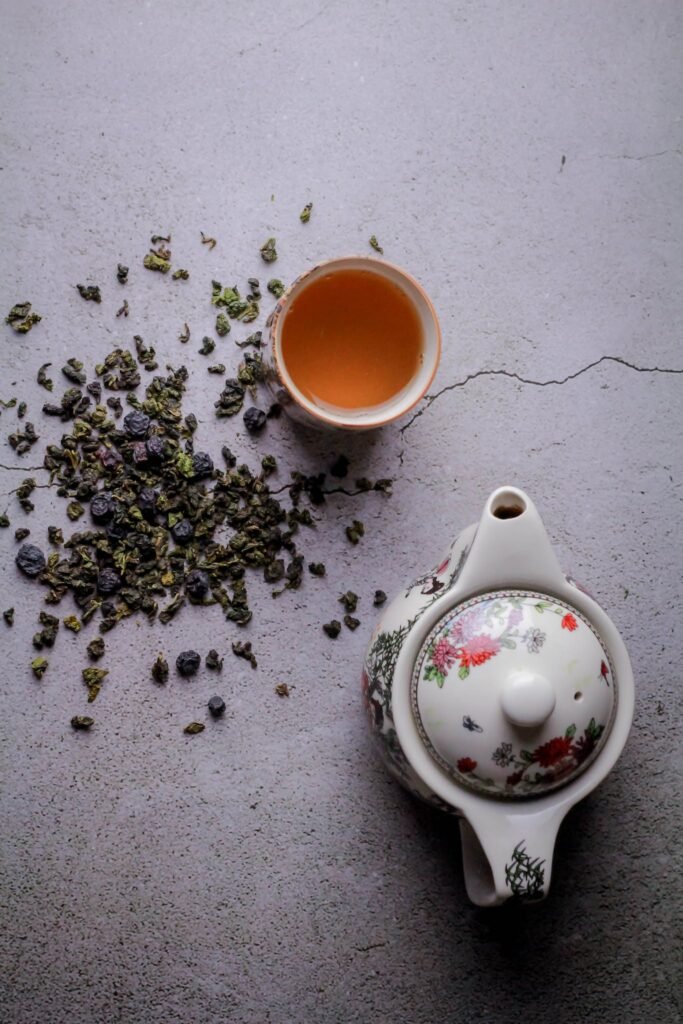
Oolong Tea
Falling in the middle of the caffeine spectrum, oolong tea can be an excellent choice if you want great hydration along with the health perks of tea. Oolong contains moderate amounts of caffeine – around 30-55 mg per 8 oz cup – which is less than black tea but more than green or white varieties.
This means oolong can hydrate nearly as well as low-caffeine herbal teas, while still providing a slight energizing effect. In addition to its hydration abilities, oolong has been shown to boost metabolism and heart health due to its concentrations of polyphenols like theaflavins.
The combination of smooth, robust flavor and moderate caffeine content make oolong a go-to for those who want a cup that quenches thirst while providing other health advantages at the same time. Just be wary of overconsumption, as too much can still have diuretic effects.
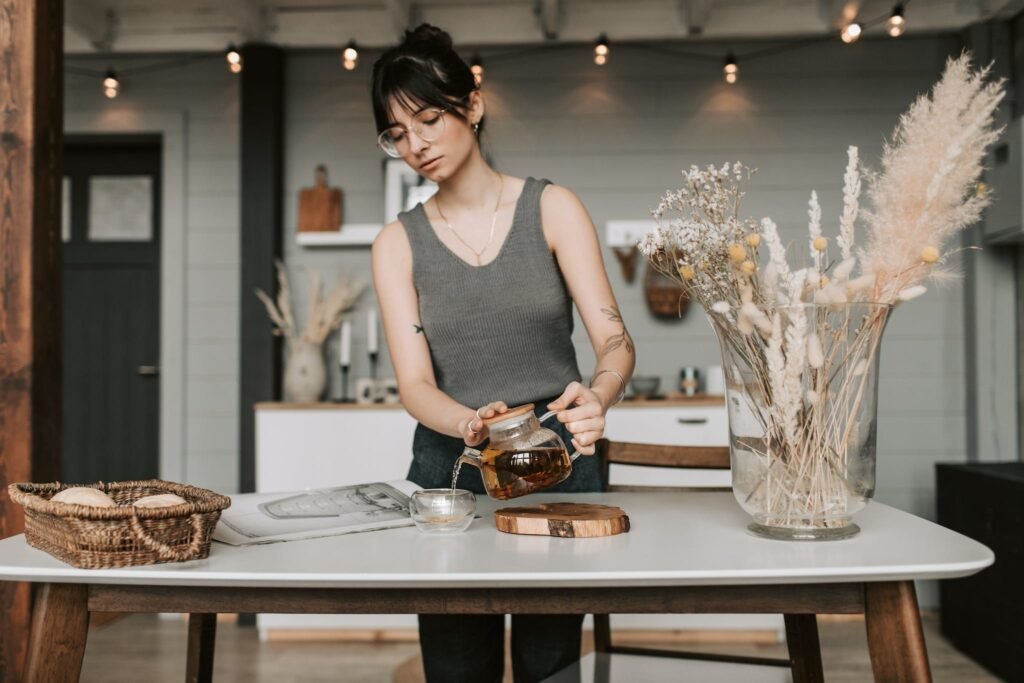
Avoid/Limit Black Tea
While delicious, it’s best to limit your intake of black tea if hydration is your main goal. Black tea is made from leaves that are fully oxidized, which results in higher caffeine content compared to other true teas. Black tea contains approximately 50-90 mg of caffeine per 8 oz serving. This is significantly more than the amount in greener varieties.
The higher caffeine comes with stronger diuretic effects, meaning drinking black tea can cause you to urinate more frequently and lose fluids more rapidly. If you do enjoy black tea, it’s best to consume it in moderation – no more than a few cups per day – and be sure to drink plenty of non-caffeinated beverages as well.
Stick to herbal teas, white tea, or green tea if you want a larger amount of hydrating cups throughout the day without worrying about the dehydrating effects of caffeine.
Tea Hydration Tips
To get the most hydration from your tea, follow these simple tips. First, you can enjoy tea hot or iced – both provide hydration. Hot tea may even be extra hydrating as the steam released from the hot liquid contributes to fluid intake.
Just avoid adding milk, cream or sweeteners like sugar, as these can counteract the hydrating benefits with extra calories. The exceptions would be a small amount of milk in black tea, or a squeeze of lemon juice which can help with absorption of fluids.
Additionally, be careful not to over-steep your tea. The longer many teas steep, the more caffeine and tannins are released, making them more diuretic. Follow steeping times on packages or opt for a quick steep of 1-3 minutes for the most hydrating cup of tea.
Applying these tips will help maximize the hydration you get from a refreshing cup of tea.
While tea can be an excellent hydrating beverage in moderation, it’s important not to overdo it. Drinking very large quantities of tea, especially those containing caffeine, can lead to negative effects.
Consuming more than 4-5 cups per day of black tea or more than 8-10 cups of green tea could potentially cause issues like insomnia, headaches, irritability, and heartburn due to the caffeine content. Additionally, the tannins in tea may start to have a diuretic effect when consumed in excessive amounts, working against hydration.
Herbal teas are generally safer when it comes to quantity, but massive amounts could cause side effects like nausea or diarrhea. To avoid potential problems, aim to drink no more than a few cups of black tea per day and no more than about 8 cups total of all caffeinated teas combined. Always combine tea intake with plenty of water and other decaffeinated fluids. Moderation is key to harnessing the hydration power of tea.
Health experts recommend that the average person consume around 64 ounces of water per day from all beverages and foods to stay properly hydrated. Of those daily fluid needs, a portion can certainly come from tea.
Just be mindful of caffeine content if getting your fluids mainly from black and green teas, limiting intake to 16 ounces or less per day. Getting half your daily fluids from herbal and white teas is fine. So while tea can provide great hydration, it’s ideal when combined with several glasses of plain water as part of meeting your daily hydration goals.
To sum it up, some of the best teas for hydration include herbal teas, white tea, and green tea. These have lower caffeine content and are less likely to act as diuretics compared to black tea. Remember to limit your intake of black tea, as the higher caffeine can lead to dehydration.
Also avoid adding milk, cream or sweeteners to your tea, as these undercut the hydration benefits. Overall, drinking herbal, white or green tea throughout the day is a tasty way to hydrate. The variety of flavors from floral chamomile to earthy peppermint makes it easy to sip cup after cup, effortlessly keeping your fluid levels where they need to be.
So brew a big batch of your favorite lower-caffeine tea and enjoy it often to properly hydrate while also benefiting from the antioxidants and soothing nature of tea. For the best hydration, combine tea with other healthy beverages like water and coconut water as part of your daily fluid intake.


![Can You Bring a Water Bottle on a Plane in 2024? [Updated Guide] 6 Gray Plane Wing](https://hydratehere.com/wp-content/uploads/2024/08/gray-plane-wing-62623-scaled.jpg)
